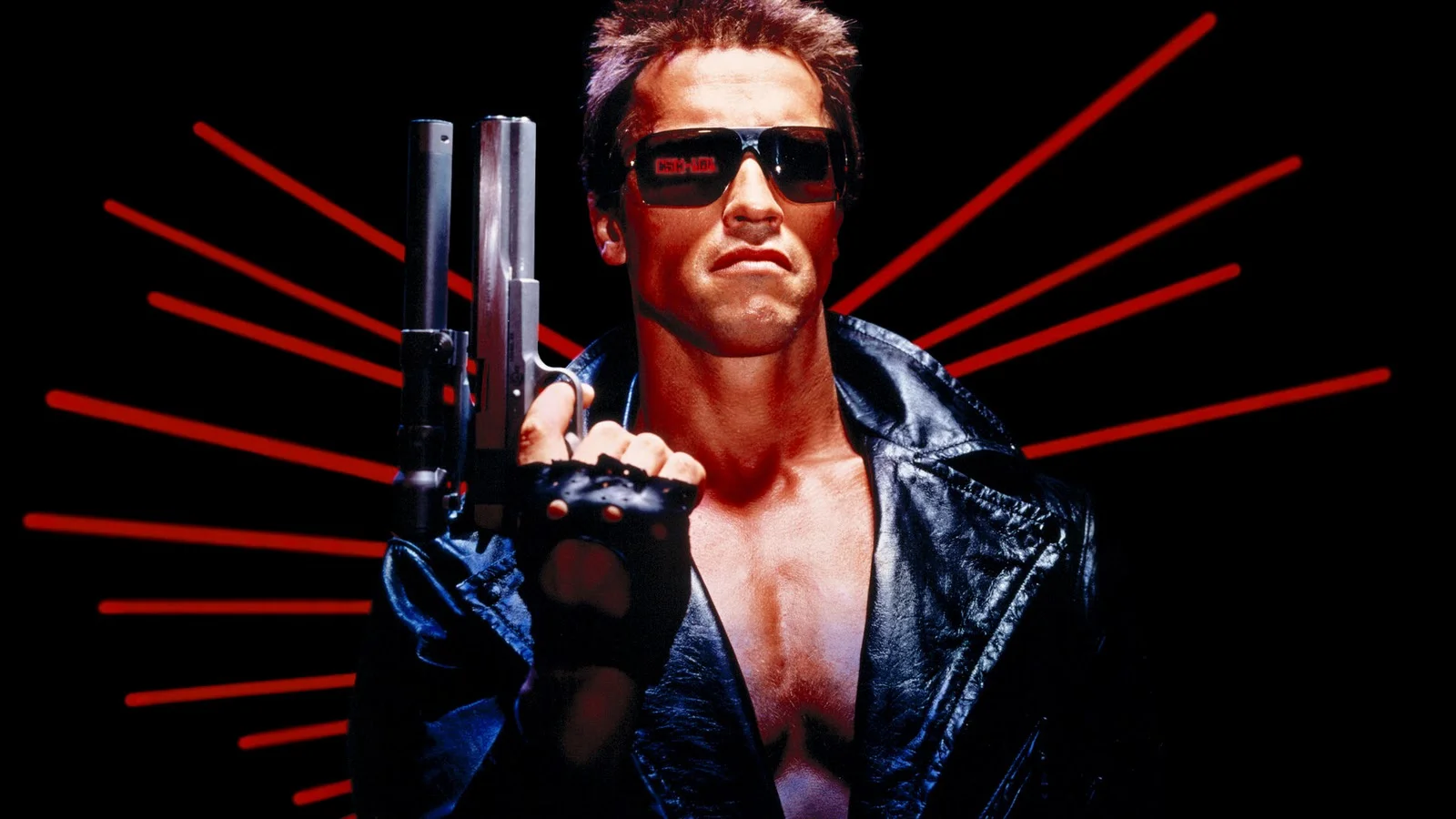So, in case you haven’t heard, James Cameron, Arnold Schwarzenegger, and Linda Hamilton are working together again on a new Terminator film. They’re saying all the right things: they’re returning to the roots of the original two films; they’re resetting the franchise, essentially; they’re pretending the films Terminator 3 onward do not exist. And I’ll admit, at first, I was on board. Hearing James Cameron talk alongside Tim Miller (the director of Deadpool, now set to direct this new film), it is clear that they are both smart, passionate, and genuinely enthusiastic to try to make a good new Terminator film. I could hear some of James Cameron’s ego at play —I mean, he hasn’t made a good film since Titanic, and even that was mostly in terms of craft rather than artistry, so of course he wants to make a splash somewhere before Avatars 2-500 come out. But I was on board. Until they said, “…and we want to make it three movies.”
…and then I was very much off board.
Because all of a sudden, I saw this seeming passion project in a new light. This may be Tim Miller’s genuine desire to salvage the Titanic that is the Terminator franchise, (like that mixed James Cameron metaphor anyone?), but that desire and enthusiasm has been subordinated to a far more cynical enterprise—yet another gargantuan, monolithic franchise or cinematic universe. My worst fears were confirmed when the interviewer asked, “Is this the Star Wars model?” and Cameron replied, “Yes, this a passing of the baton to a new generation.” (Paraphrasing, of course.)
Now, my issue here is less a vague anti-capitalist or mainstream studio filmmaking screed, and more a specific point of taking some of the most talented young studio filmmakers of our time and all putting them to work on massive properties like assembly line workers. Because the interviewer was right to bring up the “Star Wars” model. Has anyone else been paying attention to the churn-and-burn attitude Disney has been treating creatives with lately? Garth Edwards’ Rogue One had massive reshoots when Disney hired Tony Gilroy (who wrote Bourne, directed Michael Clayton) in a total last minute, mercenary move. Disney fired Colin Trevorrow from Star Wars Episode IX before it even started production because of less than stellar reviews for his latest film. They also manhandled Phil Lord and Christopher Miller of 21 Jump Street and The Lego Movie fame while they directed the new Han Solo film, until eventually chucking them out for Ron Howard. Rian Johnson has managed to direct Episode VIII without incident, though I’m starting to wonder if that’s more due to him keeping a low profile than any benevolence on Disney’s part.
Besides the cited inciting incidents—falling behind production schedule for Lord and Miller, clashing egos for Trevorrow, and last minute plot changes for Edwards—it’s hard to look at this mess and not see a studio grinding the creative impulses of these directors to dust. Just take a look at the caliber of director they’re hiring—Disney isn’t getting established big names, they’re hiring talented up-and-comers who aren’t veteran enough to argue with their creative direction being thrown into the gears of the big machine. And Star Wars isn’t alone! Warner Brothers and Fox and Marvel (essentially Disney still) have been doing the same with superhero movies for ages now. Joss Whedon was the architect of the Marvel Cinematic Universe before getting, pardon my French, royally fucked on Age of Ultron and then booted. Edgar Wright was unceremoniously kicked off Antman. Fox hired Josh Trank from Chronicle (remember that weird little film) for that new Fantastic Four, then butchered it in reshoots and edits for being too niche.
The sad thing is, there is a genuine lure to all of this. If someone approached me with the opportunity to work with STAR WARS, then yeah, I’d put up with a lot of shit. These amazing, talented young directors are simultaneously being given a great opportunity while sort of wasting it by not pursuing their own original projects, but adapted or existing properties. At some point in the Tim Miller and James Cameron interview, Miller said that he honestly prefers to work with adapted material, with books or films that already exist and he loves. And I get where he’s coming from, as someone working on an adaptation at this very moment. But I had this, perhaps overdramatic, lachrymose moment as I foresaw some dystopian future where directors no longer create their own material, but throw themselves into existing, safe bubbles of brands. Where all their creativity goes into making the same thing but different. I was reminded, again, of Jean Baudrillard’s ideas of post-modern society, and how it is no longer based on reality but models of reality. Well, this interview went one step further and showed me a society where we don’t even base ourselves on any models of reality, but only specific models of reality. And it scared the shit out of me. Because as much as I love working with existing great books or great movies, if that’s all we ever do, who will be left to make those great movies in the first place?
Jurassic Park is now a cinematic universe. Star Wars is now a cinematic universe. Fast and Furious is about to become a cinematic universe. Sony attempted to make Ghostbusters a cinematic universe. Let’s not even talk about Universal and the Dark Universe of their classic monster films turned into action schlock.
And now Terminator is about to become a cinematic universe. Congratulations, world. You finally made me root for Skynet to kill us all.
